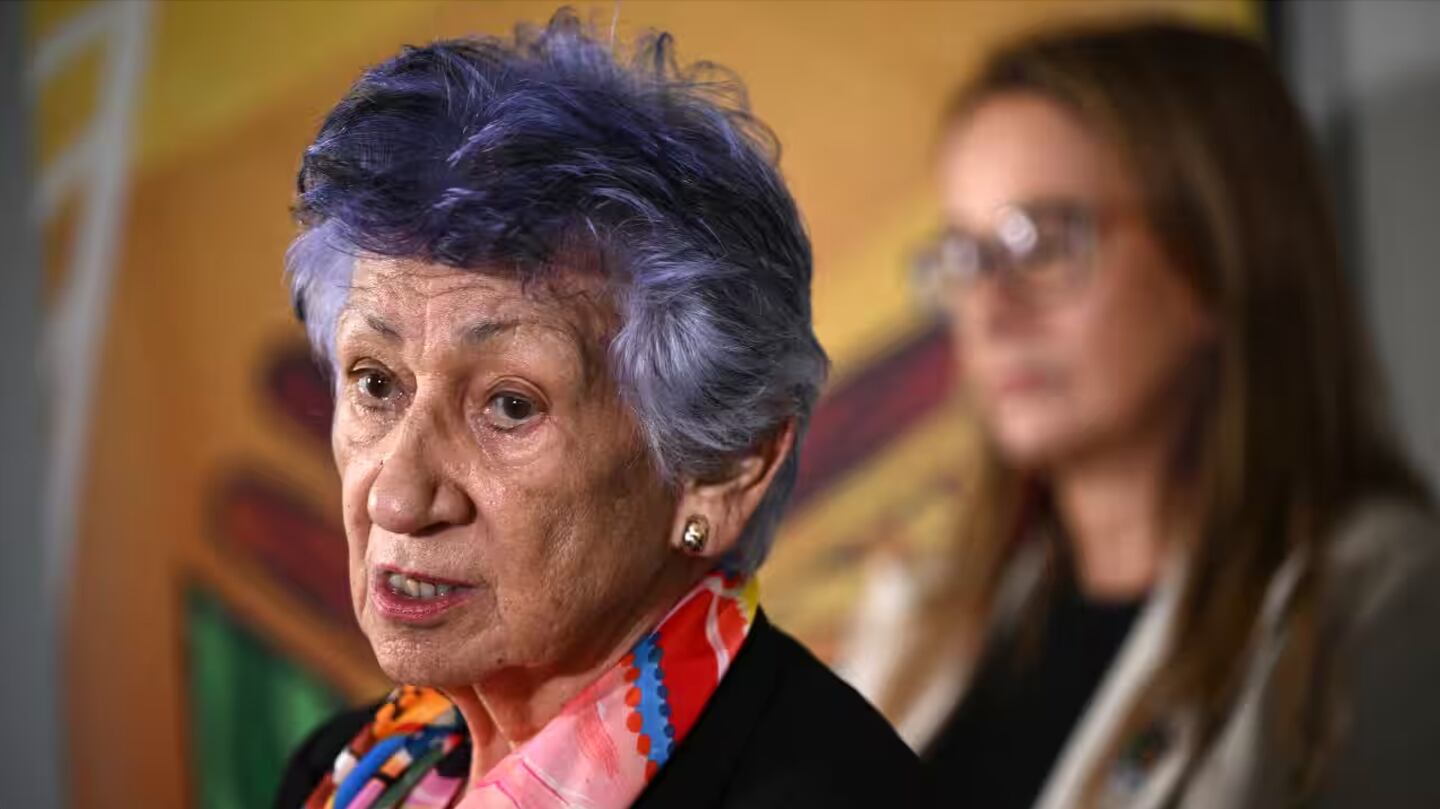This article was first published by NITV.
The Yoorrook Justice Commission, Australia’s first truth telling inquiry, will hand down its final report next month, with the head of the Commission saying many of the recommendations can be achieved through a statewide Treaty process.
In a speech to the Melbourne Press Club the Commission’s Chair, Professor Eleanor Bourke, said the recommendations would cover a wide range of areas.
“In our final report, Yoorrook is expected to make more than 100 recommendations based on the evidence that we have received,” she said on Tuesday.
“These recommendations include significant reforms to broken systems, and a range of practical solutions to the problems the government can implement now.
“Other recommendations will be suitable to be taken forward through the Treaty process.”
Professor Bourke, a highly respected Wergaia Wamba Wamba Elder, led the Yoorrook Justice Commission as it held hearings investigating areas such as health, education and housing, youth justice, economic prosperity, and Elders’ truths.
She said she had been humbled by the First Nations people who gave evidence.
“We’ve listened to Elders who buried their grandchildren taken by the state and sat with mothers criminalised for being poor; we’ve heard about Aboriginal babies being marked for removal by child protection before they were born,” Professor Bourke said.
“We’ve listened to communities fighting for access to their own Country, and to men whose lives were swallowed by prisons before they ever had a chance.”
“These are not stories from a distant past - they are stories in the now.”
Yoorrook, which has the powers of a Royal Commission, was given the scope to investigate all systemic injustices faced by Indigenous people in Victoria dating back to the start of colonisation.
Professor Bourke said she believed it was the widest terms of reference for an inquiry ever held in the state, and possibly for any truth telling inquiry in the world.
Truth Telling must lead to action
Over the course of its hearings, commissioners heard apologies from 16 different Victorian government ministers and public service officials.
“Ministers have been brought to tears during their testimony and made profound commitments to do better,” Professor Bourke said.
“These apologies were important ... historic even - but without action, what do they actually mean?”
Last April the Victorian Premier Jacinta Allan appeared at Yoorrook, becoming the first head of government to give evidence at a truth telling inquiry.
“I did not know of the massacres I’m ashamed to say,” she said at the time.
“I have learnt about the size and scale of the murders and the massacres through my preparation for my appearance today.”
The premier also promised to make a formal apology to Aboriginal people in Victoria “at an appropriate time” - however she has yet to do so.
“We’re still waiting for that so there will be some nudges going on there, some elbowing, so we’ll wait and see,” Professor Bourke told the press club.
“The fact that she admitted on the record not knowing that history, I mean that in itself is a big thing.
“That’s truth telling.”
A few months after her appearance, Jacinta Allan announced her government would abandon its promise to raise the age children could be jailed to 14, prompting scathing criticism from Indigenous advocates.
Raising the age of criminal responsibility had been a key recommendation of the Yoorrook Justice Commission’s interim report, released after a year of hearings into the youth justice system.
Of the 46 urgent recommendations made in that report, the state government only accepted four in full. 24 were accepted “in principle” and a further 15 would be considered.
Earlier this week the state government touted a $727-million-dollar investment into increasing the number of beds in Victoria’s prisons and youth detention centres, after its changes to bail laws saw a dramatic increase in the number of children and adults being held on remand.
In the 12 months to April there was a 22 per cent increase in the number of adults in remand in prison and a 71 per cent increase in the number of children in detention.
The increase follows the Victorian government’s move to toughen bail laws, which had been relaxed after a scathing coronial inquest into the death in custody of Gunditjmara, Dja Dja Wurrung, Wiradjuri, and Yorta Yorta woman Veronica Nelson.
The Victorian Aboriginal Legal Service condemned the funding announcement.
“Prisons are not the answer to community safety,” said VALS CEO Nerita Waight.
“To celebrate numbers of children, young people and adults held on remand — people who are yet to be sentenced — as an indication of achieving community safety is flawed, deeply troubling and misguided.”
A chance for change
Professor Bourke said the First Peoples Assembly - which is currently negotiating a statewide treaty with the Victorian government- and the independent umpire Treaty Authority needed to be given long term security and self-governing mechanisms.
With the Yoorrook Justice Commission due to hand down its final report by the end of June, she also argued the need for an ongoing truth telling process to continue.
“We don’t want to disappear under a rock again and wait for something else to come along and give us permission to speak.”
Professor Bourke said Labor’s landslide victory at the federal election earlier this month would give the major political parties a chance to recommit to bipartisanship on Indigenous affairs issues.
It comes after a turbulent final week of the election campaign, which saw the Coalition reignite culture war issues on topics like Indigenous Welcomes to Country before its defeat.
- NITV



